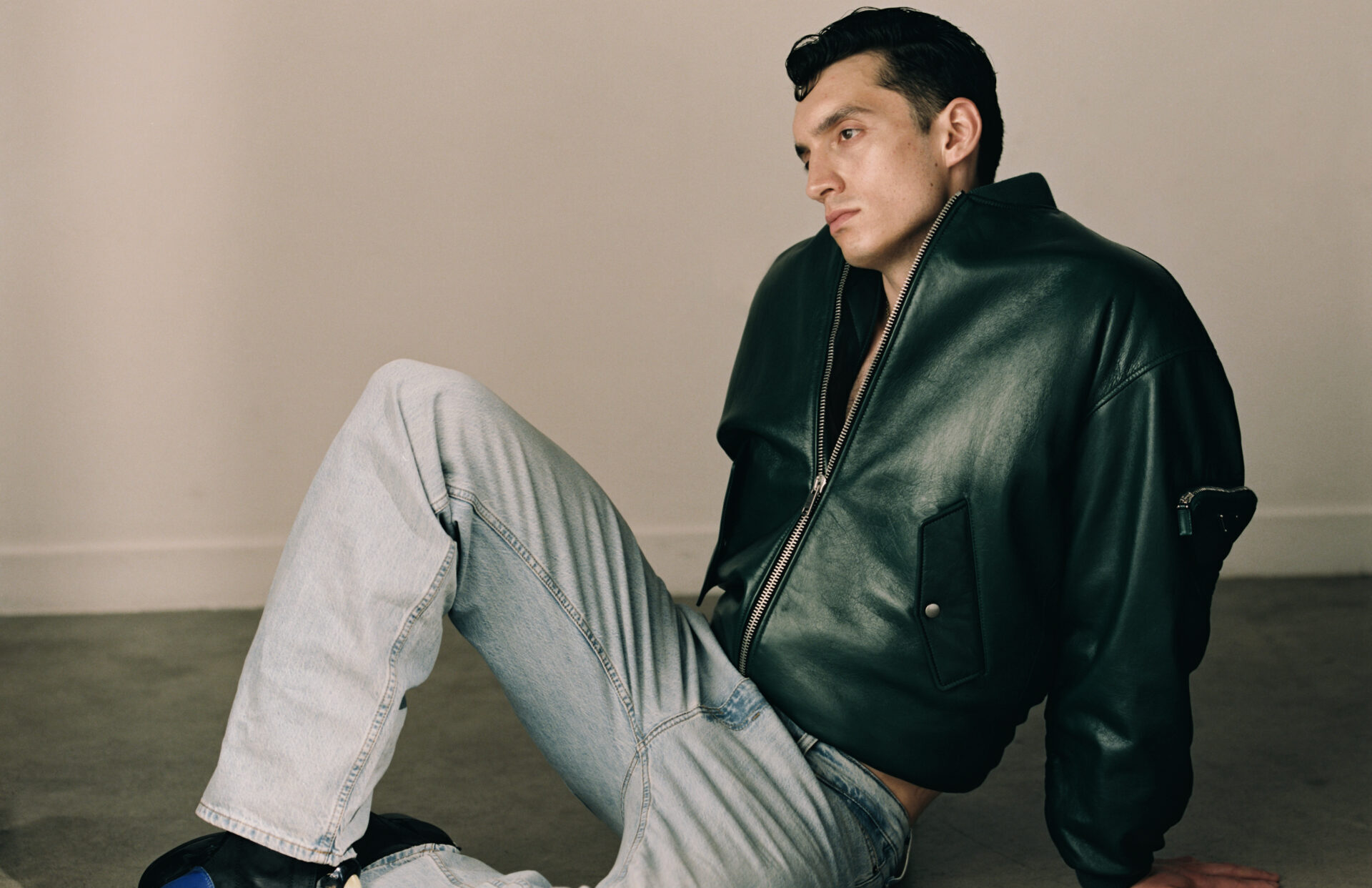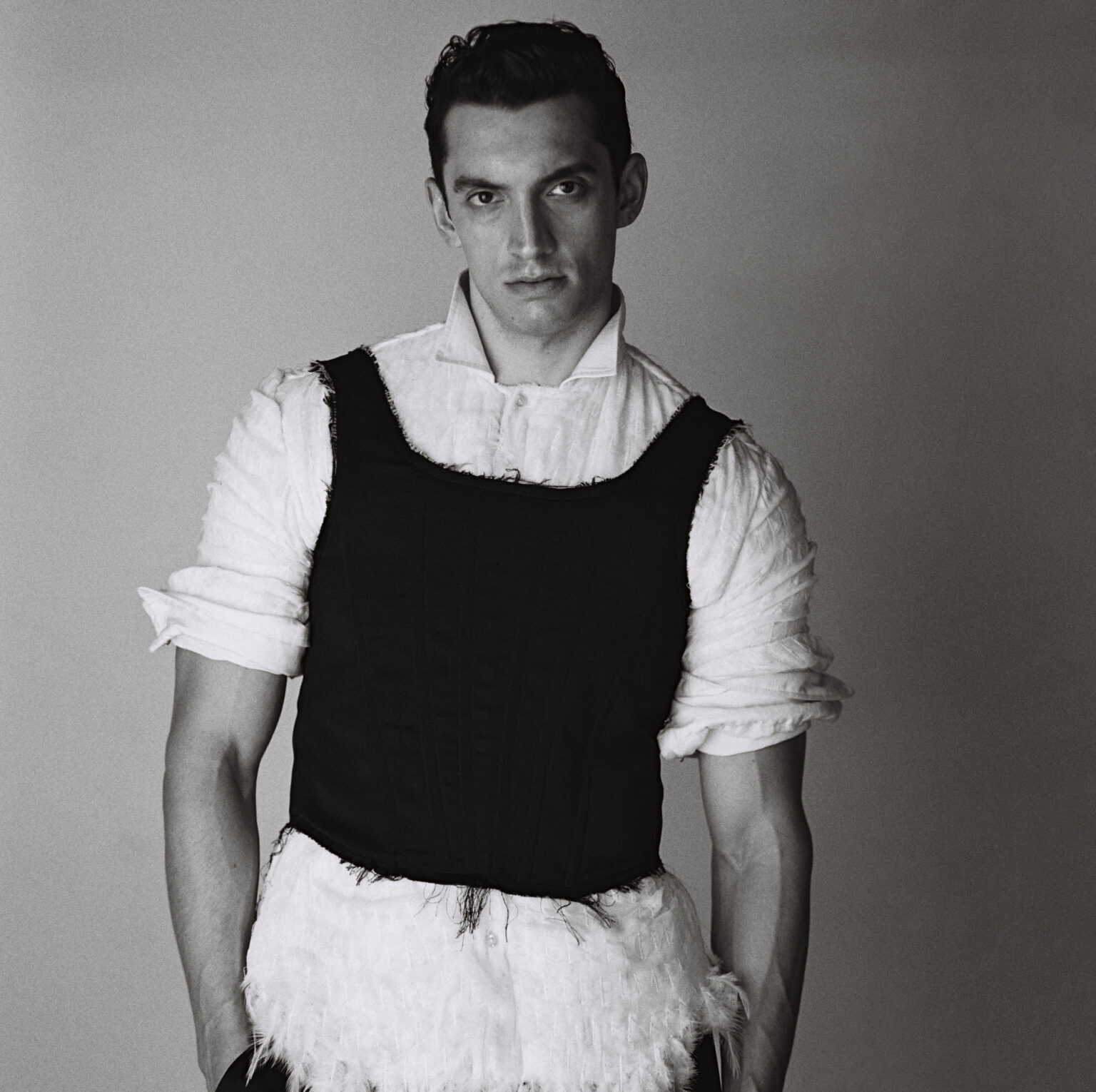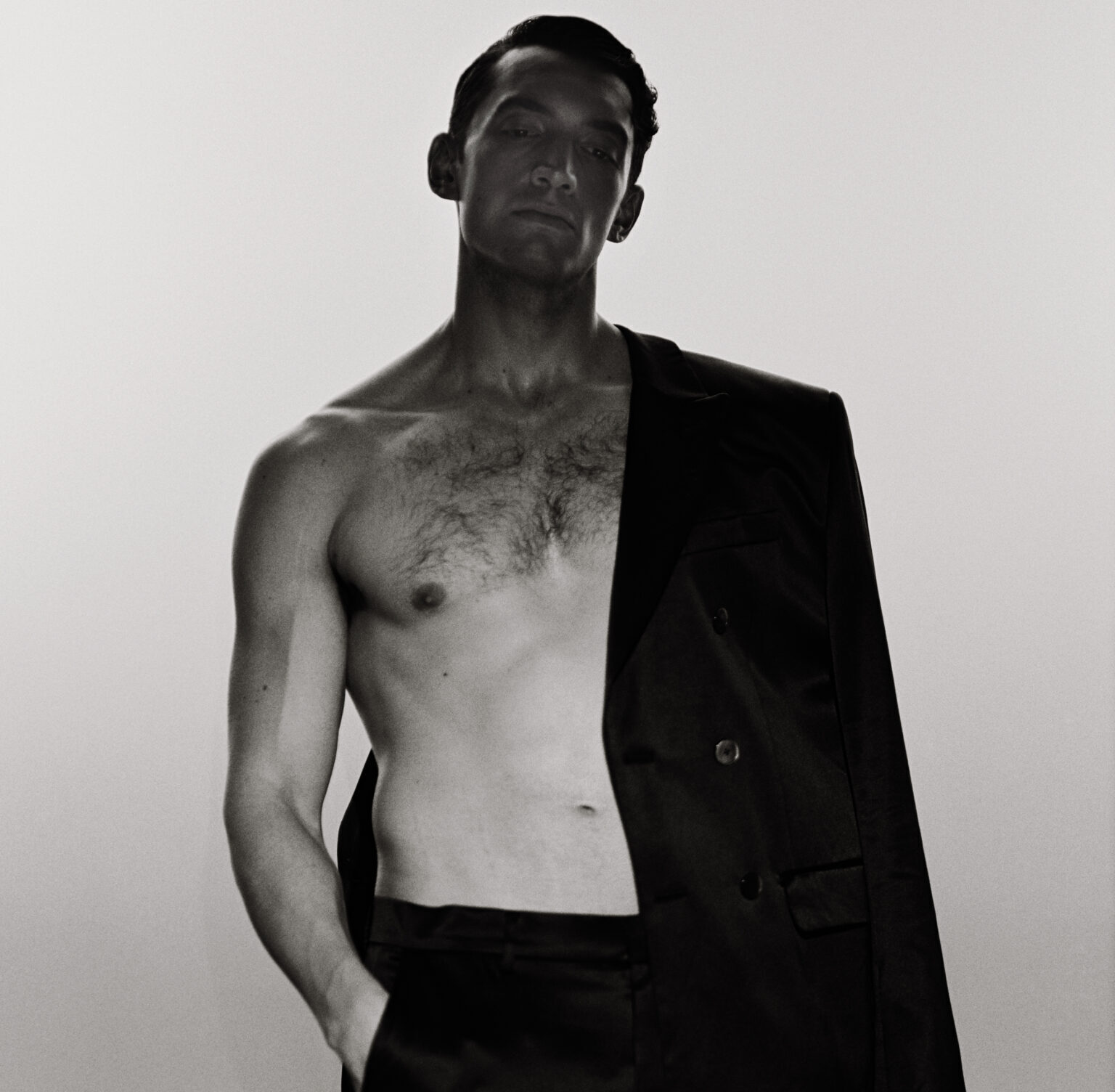James Olivas in conversation with Rosie O’ Donnell
WRITER: Patrick Grady
When Rosie O’Donnell rang James Olivas to chat, the conversation was never going to be ordinary. One’s a Broadway legend, the other a rising star in Jamie Lloyd’s stripped-back, searing revival of Evita – and what followed was a heartfelt exchange about ambition, identity and the power of performance.
From growing up in Texas with dreams of engineering to commanding the West End stage alongside Rachel Zegler, Olivas opens up about rewriting expectations, building his confidence (and his physique), and finding purpose in art that dares to say something. As Rosie says, she’s seen everything since 1973 – and James? He’s one to watch.
Rosie O’ Donnell: Hi James, how are you?
James Olivas: Hi Rosie, I’m so good. Really excited for this conversation!
RO’D: I am too, I’ve got to say, I can’t stop thinking about your Evita Performance. It was so lovely to meet you. Actually, I’m back in London at the end of the month and have booked to see it again.
JO: No way! That’s so nice to hear. I’m so happy we were able to meet last time.
RO’D: I’m curious about how you got into theatre. What was the first show you ever saw?
JO: I think the first show I ever saw was probably a production of Jersey Boys on the national tour. It was such a mega musical, with big flashing lights and numbers. I remember sitting there and being like, “Wow, I want to do what they’re doing.”
RO’D: How old were you at that point?
JO: I was in high school at the time. Must’ve been a sophomore or a junior. It was actually a birthday present from my parents and I brought along a friend, who was not interested in theatre at all, but he loved me, so he came along. Looking back, that was a really big turning point for me. It was a huge shift in perspective and kind of a discovery of real passion.
RO’D: Do you think it was right after that performance that you knew that was what you would want to do?
JO: Surprisingly, no, I don’t think so. I grew up in Texas and my father’s a mechanical engineer. Growing up, I always had the mentality that I would do the same. There was a clear path I was supposed to be following. So, it took a little while to allow myself to ponder the idea of following my passions. My thought process at the time was that I’d do theatre and act at the weekends and be an engineer during the week. It’ll just be my creative outlet. It wasn’t until I had done a few shows over a couple of years and had applied and gotten into UCLA, where it finally hit me – “What if I actually did this?” It was a huge leap of faith, moving away from the traditional journey I had always envisioned but I’ve never looked back.
RO’D: Were your parents supportive of this decision or did they try to dissuade you at all? Was your desire to be a mechanical engineer – like your dad – your decision or did you feel like you were supposed to because your family instilled that in you?
JO: Honestly, I think both. I’ve always wanted a family and I’ve always wanted to support them through a reliable career. It’s very ingrained in Mexican American households to be able to provide for people and to be able to take advantage of the opportunities that generations before you didn’t have. I remember my father and grandfather out delivering newspapers on Christmas morning to make money and so I felt that responsibility to really make something of myself. I think it took a little while for maybe all of us collectively to recognise that there is more to life than being an engineer or being a doctor or being a lawyer. And while those are all very crucial parts of society – we read books, we listen to music, we enjoy art and that is also part of our survival. We are not human without our creative outlets.
RO’D: I also wanted to know, when did you get into physical fitness? Because your body and your physique, as an instrument for an actor, is extraordinary. You were such a commanding presence physically on the stage. Have you always had that kind of muscle naturally, or did it involve a lot of work?
JO: The specific Mexican half of me has always been a bit thicker and stockier and naturally wants to be a little heavier. I played a lot of sports growing up and was a very strong kid. When I went to college, I was 50 pounds heavier than I am now and it took a bit of life happening to me – struggling with people’s perception of me and my own journey with how I was perceived to start the fitness journey. I started on the treadmill, with demons chasing me.
We’re in a shallow industry and how you look unfortunately plays a huge part. I think I’ve been able to separate my own personal self worth from maybe how I look on stage or how I present. It brings me a lot of joy. It has become a very meditative thing for me to be able to go in and get my exercise done and completely shut out all of the noise.
RO’D: I remember when you walked out with tiny little Rachel [Zegler], and I was like, “Wow, look at that man’s physique.” You almost looked like one of those power lifters, Mr. Universe – which you don’t often see on Broadway. Do you think that’s helped in terms of your career so far?
JO: Yeah, I think with this role specifically. It was interesting to approach it as an actor. Figuring out how to establish this presence and make an impression on the audience with a very little amount of material to work with. You know, I’m not singing a ton, I’m not saying a ton, I’m not even really moving a ton. So, how do you convey this same sense of authority and intimidation? I really struggled with that early on, but I really leaned into it and I think even since you’ve seen it last, it’s really continued to progress. It comes down to the mentality as much as it does the physical side of things. As a larger person, I’ve always been concerned about how much space I’m taking up and trying to make myself smaller. Now, I feel liberated by it and really allow myself to exist on stage, unapologetically. It’s been a wonderful growing experience for me.
RO’D: Truly, it’s a beautiful show. I cried my eyes out, I was just so moved. I saw the original when I was in high school and was completely blown away by the whole thing. It really imprinted on me. I remember lying between the Hi-Fi speakers on the shag rug and blasting it as loud as I could and getting every single word. It’s quite something for you guys to do it the way you are. That director [Jamie Lloyd] is a genius. He’s unbelievably original and the array of dancers made such an effect. The strong women throwing themselves at each other – you could never tire of it.
JO: Jamie Lloyd is unbelievable. I’d seen his work in Sunset Boulevard on Broadway and immediately knew I wanted to work with him. So when this opportunity came along, I couldn’t have been more excited. I was a little thrown at first to learn that the age difference had changed and now Juan was something I’d be going in for. But especially with the idea of making something as divisive and controversial as the political situation in Argentina at the time and making it relevant in the year 2025 and ring true and relatable in a lot of the themes that you see. I think we strive to make it as topical as we can. We have a responsibility to respond to all that’s going on in the world. There are too many things happening in the UK, in the United States, all across the world not to have something to say about it.
RO’D: Yes and what an amazing vehicle Evita is to tell that story and to see how fascism, authoritarianism, corruption and politics intersect. It’s frightening times for everyone. I think that this production is beyond needed and I’m so happy that it’s so brilliant. You know, I’ve seen everything James. Since 1973, I’ve pretty much seen every musical that’s come along. It’s been the greatest part of my life, the addition of theatre. I’m so fueled by it. So, I want to thank you because you inspired me so much creatively that opening night show.
JO: That means the world. I’m so glad that we got to meet you. I feel so lucky to be part of a show with so much representation. Rachel [Zegler] is Colombian American and to have me and Diego [Andres Rodriguez] being Mexican American and being able to push back on the aggressive narrative of us contributing negatively to society. There’s a bunch of people out there ready to rise to the occasion – we just have to give them a chance.
RO’D: Yes. It’s so vital for there to be messages of truth amongst all of the lies that are being perpetrated against Hispanic people. Is there a role that you think, “This is what I’d love to do?”
JO: You know, I’ve struggled with this question before and I think it’s ultimately because I think the role of that magnitude for me hasn’t been written yet. I think it’s still out there. I love being part of new work and being on the ground floor of the developmental process. What I found really feeds my soul is being able to be a part of something that feels bigger than myself.
RO’D: Good for you. I think it’s so wonderful to see the next generation of actors come up. You know, that Rachel [Zegler], my god in heaven. What can you even say about the talent of that young woman?
JO: A force of nature. I am blown away by each and every performance, at how astonishing she is. I mean, I run out of words to describe how impressive the work she does is.
RO’D: How was the audition process for this role? Were you living in New York or were you in LA at that time?
JO: I had recently come to New York, which was very fortunate because I was able to attend the callback in person. Looking back, through the process of auditioning, callbacks and work sessions, I experienced a bit of imposter syndrome. It was through conversations with Jamie [Lloyd] that helped overcome that initial apprehension.
RO’D: With the uncertain, crazy times we find ourselves living in today, do you ever worry about politics and how it might affect your career in terms of silence culture?
JO: I think Rachel [Zegler] is a wonderful example of someone who demonstrates the importance of being outspoken about things that are meaningful to you. To give credit where credit’s due, you are one of the sole voices unafraid to speak up publicly and I look at Rachel in the same way in the sense she’s outspoken about things that are not supposed to be talked about. It takes people like you, with these platforms, to stand up for what they believe. With myself and politics, I find my art and my politics very closely intertwined. The idea that we as artists should just shut up and provide escapism is a foolish endeavour. I think it is so incredibly important to connect with the communities around us and to ultimately give a damn about the world around you and recognise that we have a responsibility to look out for each other and speak up when we see injustice anywhere.
RO’D: Beautiful answer. Thank you for asking me to do this. I’ve thought of you many times since I saw you perform and I’m very glad I got this chance. If you need anything, ever, you can always call me hunny.
JO: That means a lot. Thank you so much, Rosie.
TALENT James Olivas
PHOTOGRAPHER Jesse Crankson
STYLIST Justin Hamilton
GROOMER Louis Byrne
STYLING ASSISTANT Lorna Lane
STYLING ASSISTANT Munachiso Obu
PRODUCTION MANAGER Lucy Jessica
VIDEOGRAPHER Casper Griffin
EDITOR Archie Dalziel


